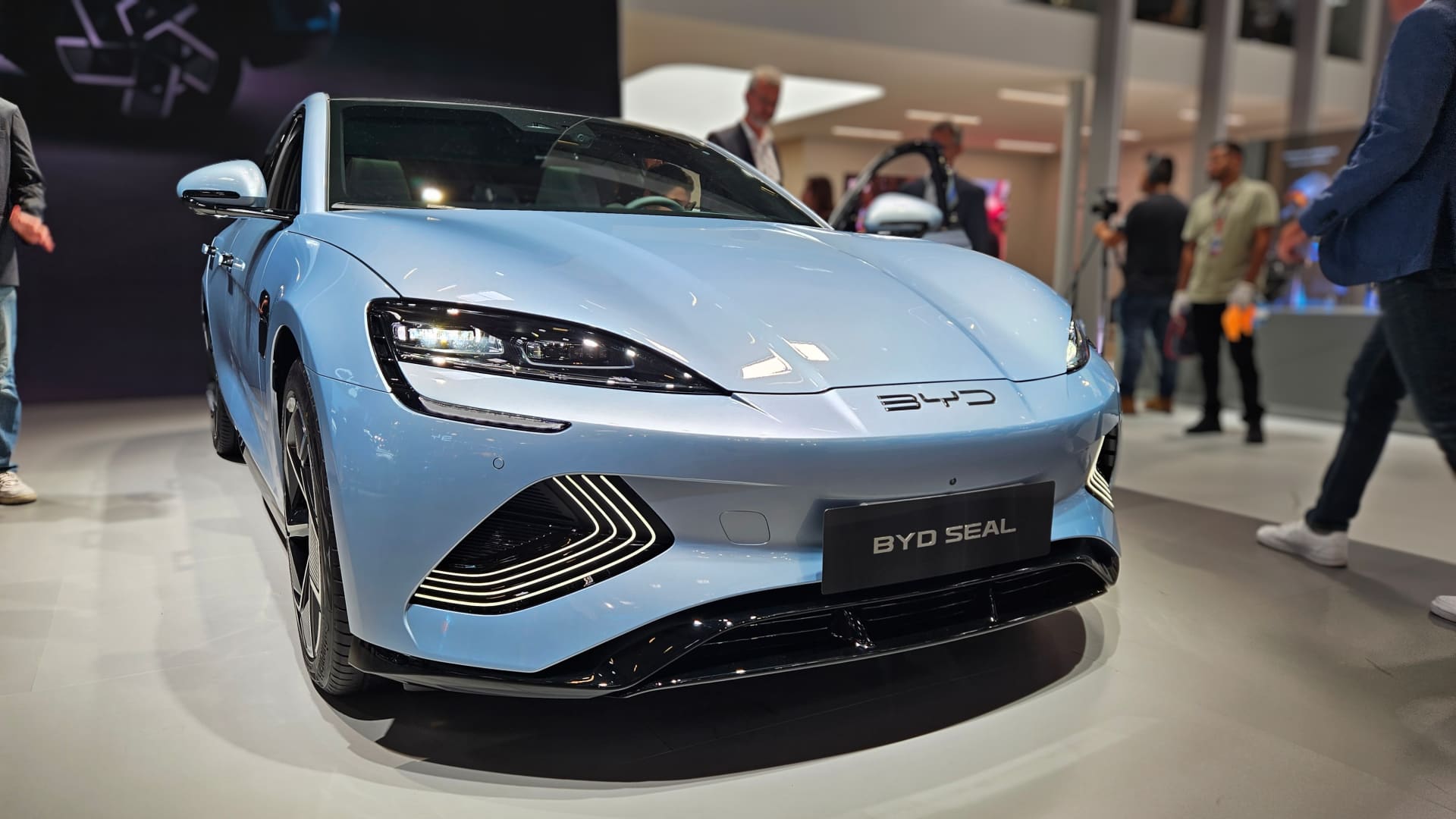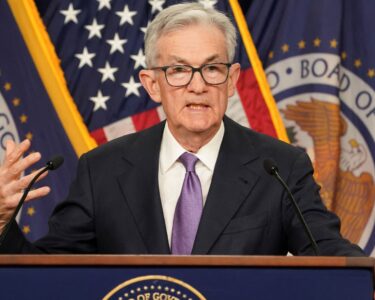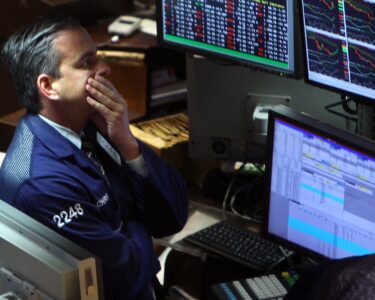[ad_1]
Warren Buffett’s Berkshire Hathaway has more than halved its stake in Chinese electric car stock BYD through successive sales over the last 18 months, filings show. The latest share sale was dated Oct. 25, just days before BYD released record quarterly earnings that prompted a few analysts to raise their price targets. “The auto segment achieved Rmb9.4bn ($1.28 billion) net profit during the quarter, suggesting Rmb11.4k net profit per car,” Paul Gong, head of China auto at UBS Global Research, said in an Oct. 30 note. “This marks a new historical high since the company focused on [new energy vehicle] sales only in early 2022, likely supported by both economies of scale, accelerating export sales and declining lithium prices,” Gong said. “BYD remains our most favored EV name under coverage,” he added. UBS raised its price target to 360 Hong Kong dollars ($46) a share. That’s up nearly 50% from where BYD shares closed Friday. In its latest offloading of BYD, Berkshire had sold its shares for an average of 245.86 Hong Kong dollars, according to a filing with the Hong Kong stock exchange . Berkshire now owns less than 8% of BYD. It’s unclear why Buffett is pulling back on the investment. The issue did not come up during a shareholders meeting in May. During a live CNBC interview in April, Buffett would only say BYD is an “extraordinary company” being run by an “extraordinary person,” but ” I think that we’ll find things to do with the money that I’ll feel better about. ” Wang Chuanfu, trained as a chemist, founded BYD back in 1995. Over the decades, the company has turned into an auto industry giant as China and other countries push for electrification of cars. BYD also produces hybrid cars. But in the third quarter, it produced several thousand more purely battery-powered passenger cars than Tesla did during that time, according to CNBC calculations of public data. Those latest quarterly results for Tesla also turned out to be a disappointment for investors. Shares are down by about 10% since. Top brand in China BYD is the top brand that consumers in China consider when buying an electric car, Bernstein analysts said in a Nov. 1 report. They cited their proprietary annual survey, conducted across more than 1,500 Chinese consumers in August and September. First-time car buyers and current owners of traditional Chinese, Korean and U.S. brands are more drawn to buy a BYD car next, the Bernstein analysis found. The firm has an outperform rating on BYD, with a price target of 359 Hong Kong dollars. Unlike Tesla and many of its competitors, BYD sells electric cars across a wide price range and is generally known in China as a money-for-value brand. BYD is also exporting its cars overseas, beginning in markets such as Southeast Asia and Europe. Jefferies expects BYD’s export sales will double next year from this year’s forecast for 200,000 units sold abroad. The analysts pointed out the automaker’s exports accounted for 9% of total sales volume in the third quarter, up from 6% in the first half of the year. Jefferies on Oct. 31 raised its price target on BYD to 331 Hong Kong dollars, while reiterating a buy rating. Charlie Munger, Buffett’s long-time business partner, did not detail why Berkshire was selling much of its BYD shares in a rare podcast interview released Oct. 29. But Munger echoed Buffett’s assessment of BYD’s leader. “The guy at BYD is better at actually making things than Elon is,” Munger told the podcast Acquired , according to a transcript. When asked about investing in China, Munger remained bullish. “The Chinese economy has better future prospects over the next 20 years than almost any other big economy,” he said. “The leading companies of China are stronger and better than practically any other leading companies anywhere, and they’re available at a much cheaper price,” Munger said on the podcast. — CNBC’s Michael Bloom and Alex Crippen contributed to this report.
[ad_2]
Source link





